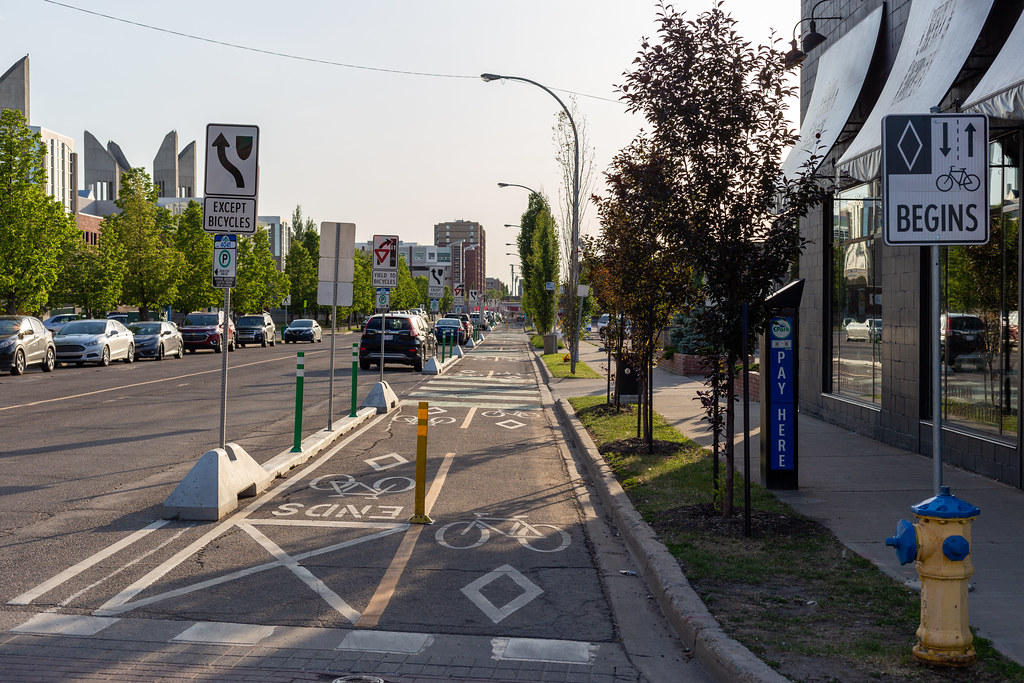This week, community and public services committee will meet on Monday, with a continuation scheduled for Tuesday morning. Urban planning committee will meet on Tuesday afternoon, executive committee will meet on Wednesday, and the code of conduct subcommittee will meet on Thursday afternoon.
Key items on the agenda include:
- Despite building more affordable housing units in the past four years than in the previous decade, one in seven households in Edmonton is still in "core housing need," which includes those spending more than 30% of their pre-tax income on housing. The final draft of the city's updated Affordable Housing Strategy, which will include an implementation plan and a measurement framework to guide affordable housing investments through 2026, will be presented to council for approval next year. In a progress update, administration says "a significant shortage of housing is anticipated by 2026" — with nearly 60,000 households in core housing need — unless action is taken to address the widening gap between supply and demand.
- A more rapid implementation of Edmonton's Bike Plan would support the city's energy transition goals while improving reliable access to safe and comfortable transportation options, administration says in a new report. Four options are presented, ranging in cost from $25 million to $170 million and in length from 11 km to 130 km. Advocacy group Paths for People said it supports Option A, which would complete the district connector network by 2026 — 100 km would be added to the bike network at a capital cost of $170 million, with annual operating costs estimated at $11 million. It would also like to see council approve funding to complete some near-term implementation projects such as more neighbourhood routes.
- Making the Clean Energy Improvement Program permanent by the end of 2023 would accelerate Edmonton's energy transition and climate mitigation efforts, at an annual cost of between $21 million and $80 million to support 500 to 1,875 projects per year. The two-year pilot of the CEIP, especially the residential stream, had "an overwhelming positive response" and was fully subscribed, administration says.
Here are some of the other new agenda items:
- Administration says the development of a digital signage policy would take 12 to 15 months to complete at a cost of $150,000. Such a policy would seek to allow the appropriate use of digital signage on both public and private property while mitigating negative impacts such as light pollution, driver distraction, and the effect on wildlife.
- An evaluation of EndPovertyEdmonton conducted last year found that the organization lacks clear priorities, does not have clear roles and responsibilities, doesn't include people with lived experience, and does not effectively report on progress. The organization committed to addressing these and other shortcomings. Administration says EndPovertyEdmonton — now incorporated as a non-profit — has made progress and that the $600,000 in funding held back during last year's budget discussions should be released.
- The Edmonton Community Development Company, established in 2017, will begin developing an updated strategic plan this fall with a focus on revitalizing Edmonton's core neighbourhoods through the development of land purchased from the city. The organization's annual funding of $280,000 ends in December 2022.
- In response to a request from the city and in exchange for a new long-term lease, the Old Strathcona Farmers' Market has developed a plan to open two days a week supplemented by a "general store" in the southeast corner of the building that would be open daily.
- In a new report outlining lessons learned since the implementation of council's code of conduct, administration recommends incorporating the sanction process into the code of conduct bylaw, and says granting the Integrity Commissioner the power to decide the sanction may be the best option.
- Administration recommends approval of a new 10-year agreement with Computronix at a cost of $3 million per year, to support the city's use of the POSSE software package. "POSSE is considered a critical application for city service delivery and outage would impact the delivery of many city services," the report says.
- Administration recommends approval of a below-market sale of the Ogilvie Ridge surplus school site to HomeEd, along with up to $4.7 million in funding, for a net-zero medium-density development with up to 50 affordable housing units.
- Offering municipal property tax relief for the 2021 and 2022 taxation years on 12 identified properties would result in total relief of about $757,000, or about $475,000 if just the affordable housing portions of the properties are considered. No budget is currently available for tax relief of this magnitude, administration says.
Three items that were postponed from the Sept. 9 community and public services committee meeting will be dealt with:
- Drug checking, which is the chemical analysis of substances for impurities that may cause unexpected harm, could be another approach to help deal with accidental drug poisonings in the city, but any service should serve a larger demographic than solely the unhoused. According to data from Alberta Health, almost half of accidental opioid poisoning deaths in Edmonton in 2021 occurred in privately owned residences.
- Proposed amendments to the Fire Rescue Services Bylaw would align regulations for fireworks with other major municipalities across Canada, administration says.
- Administration and the Edmonton Federation of Community Leagues have been discussing how to make the allocation of the three existing grants for community leagues more equitable. The new Community Parks Framework, which begins next year, is intended to ensure equitable access to community park amenities and could impact how community league infrastructure is built in the future.
Meetings are streamed live on city council's YouTube channel.

